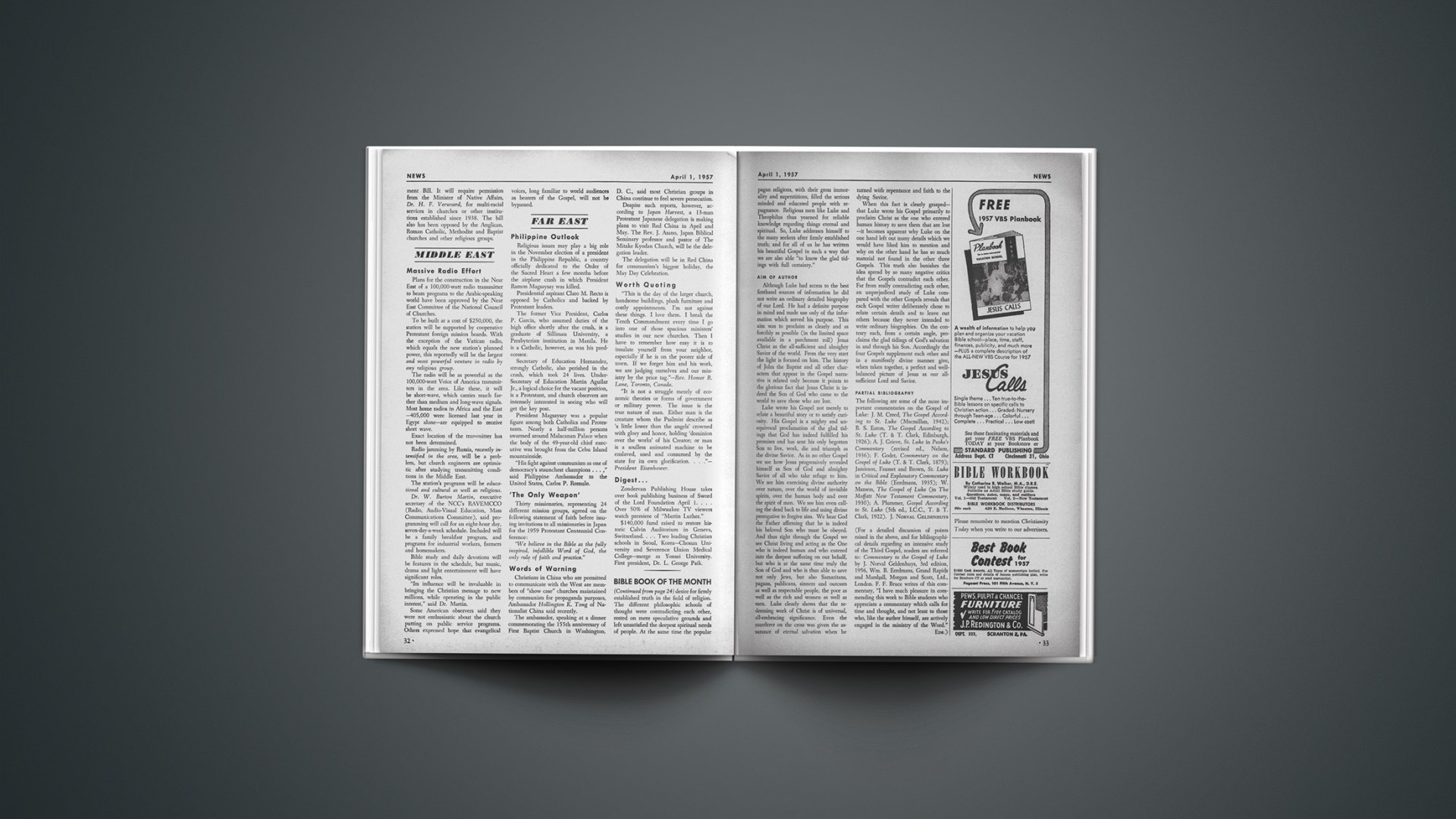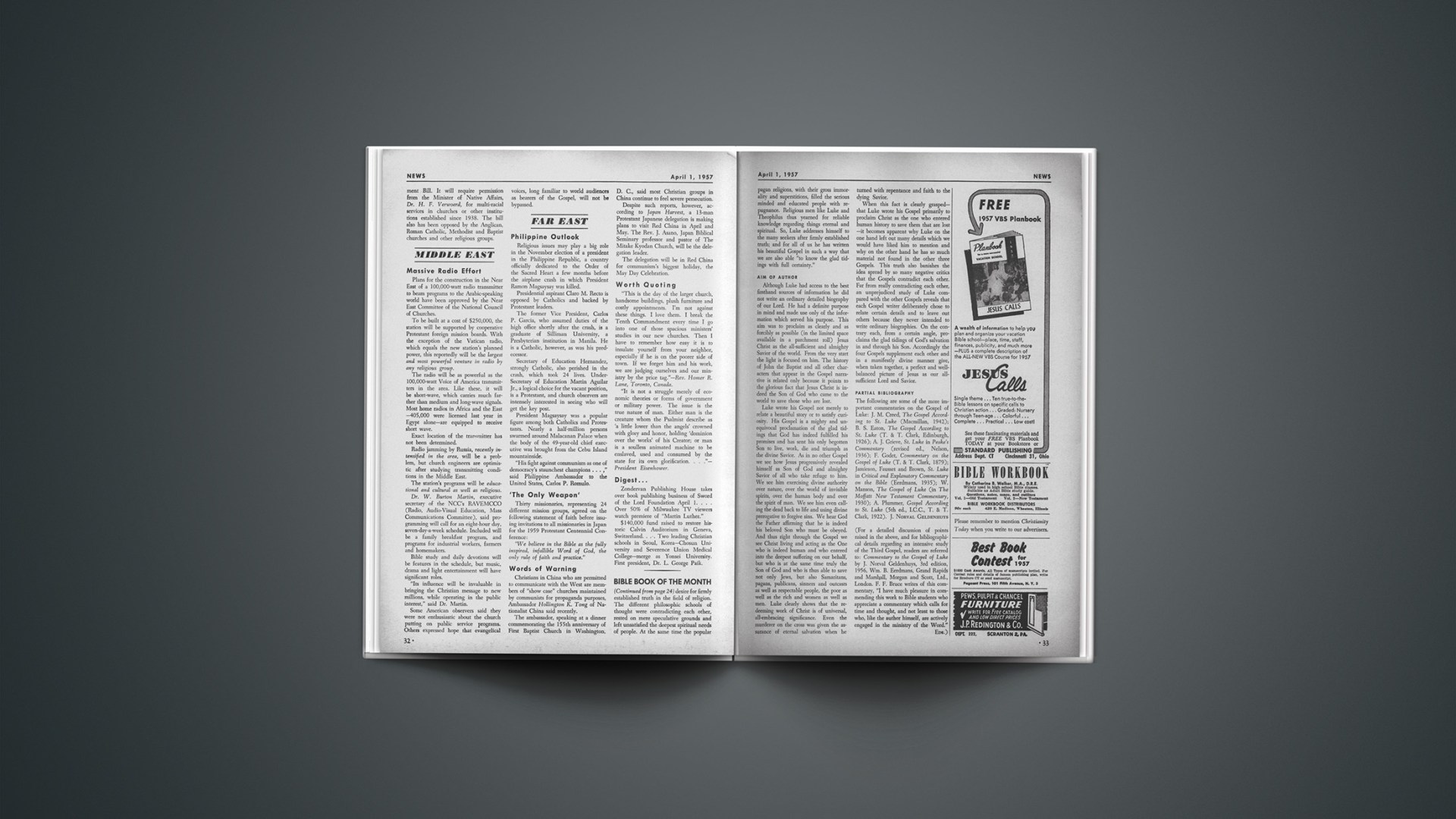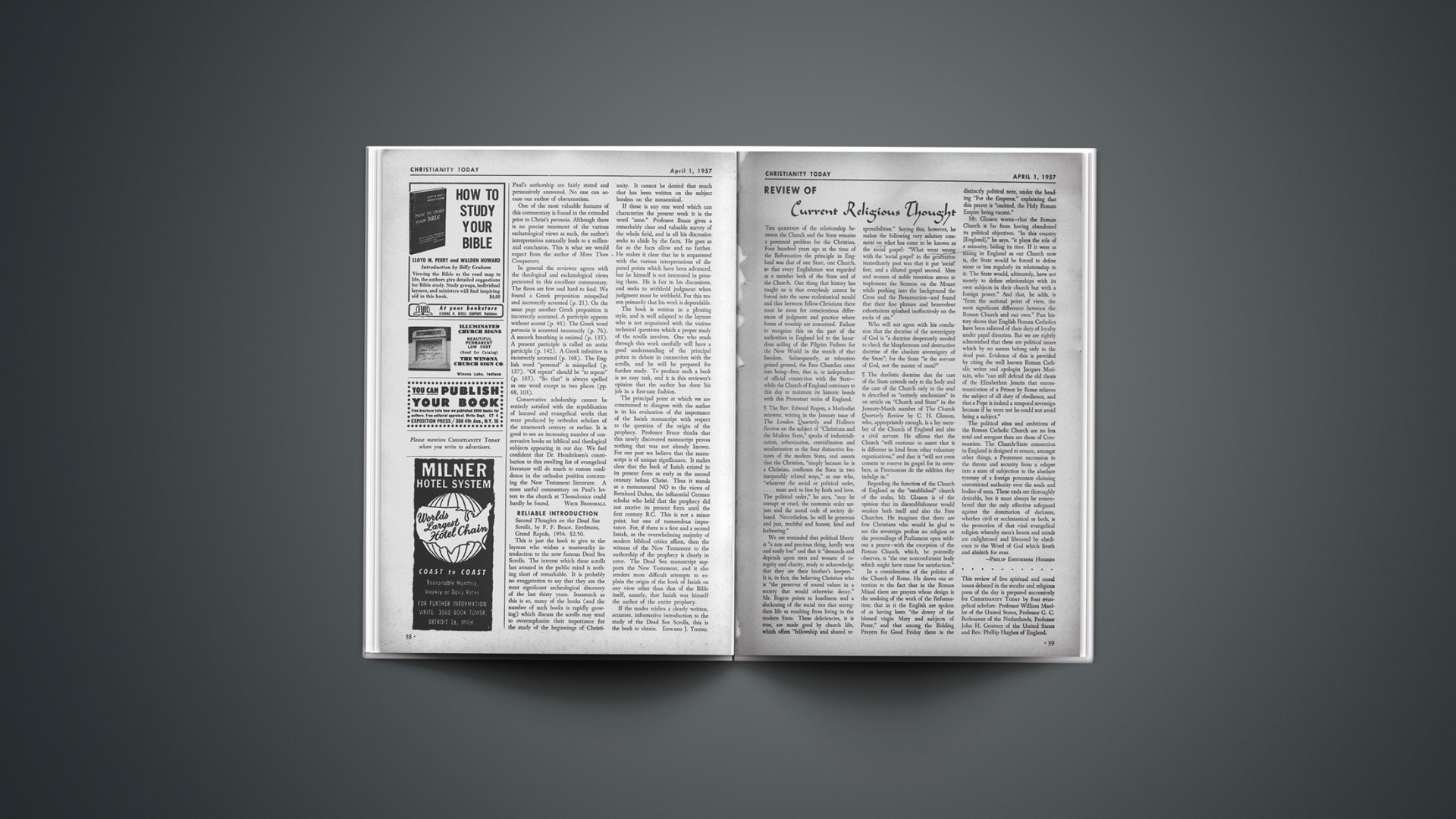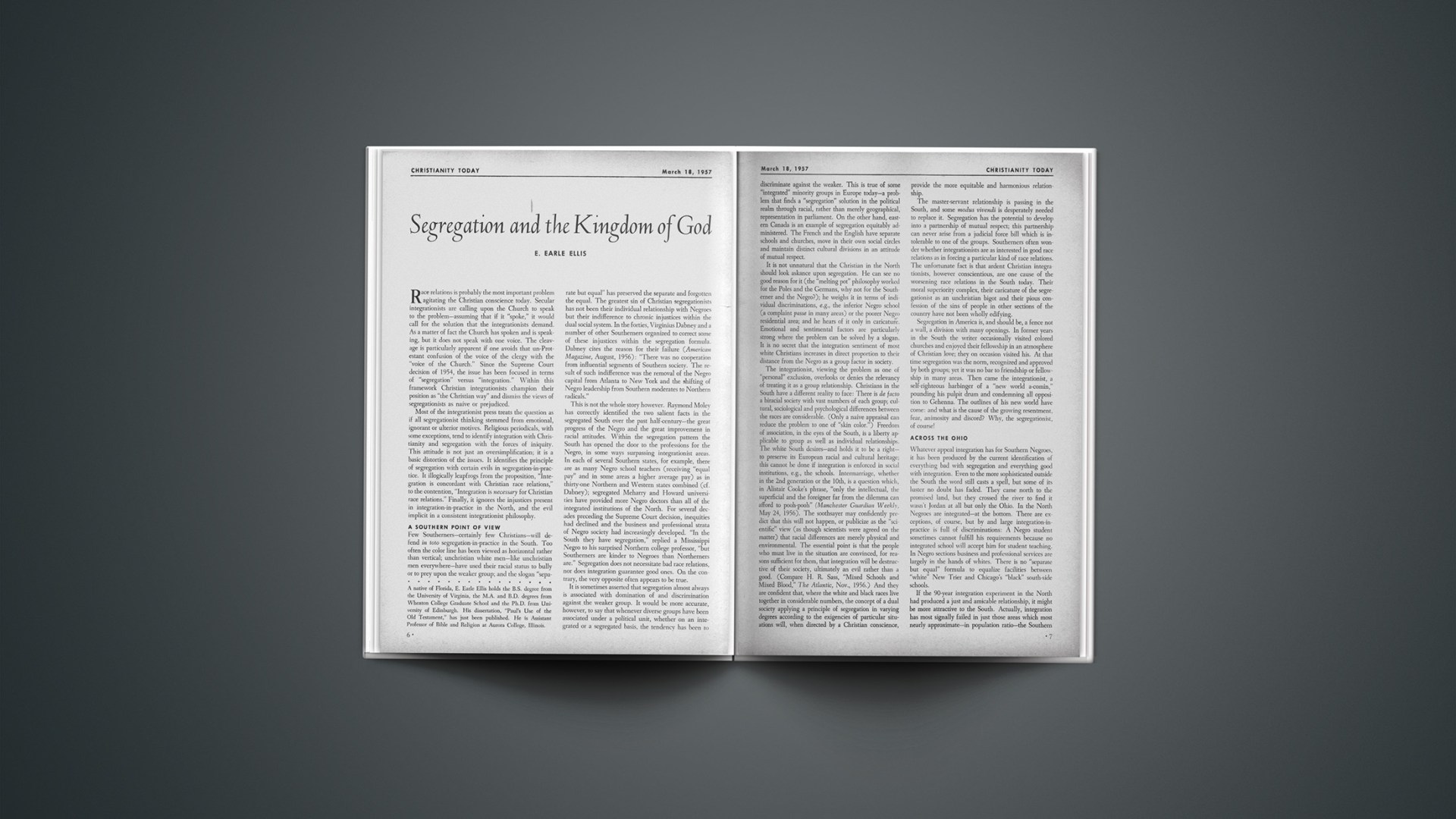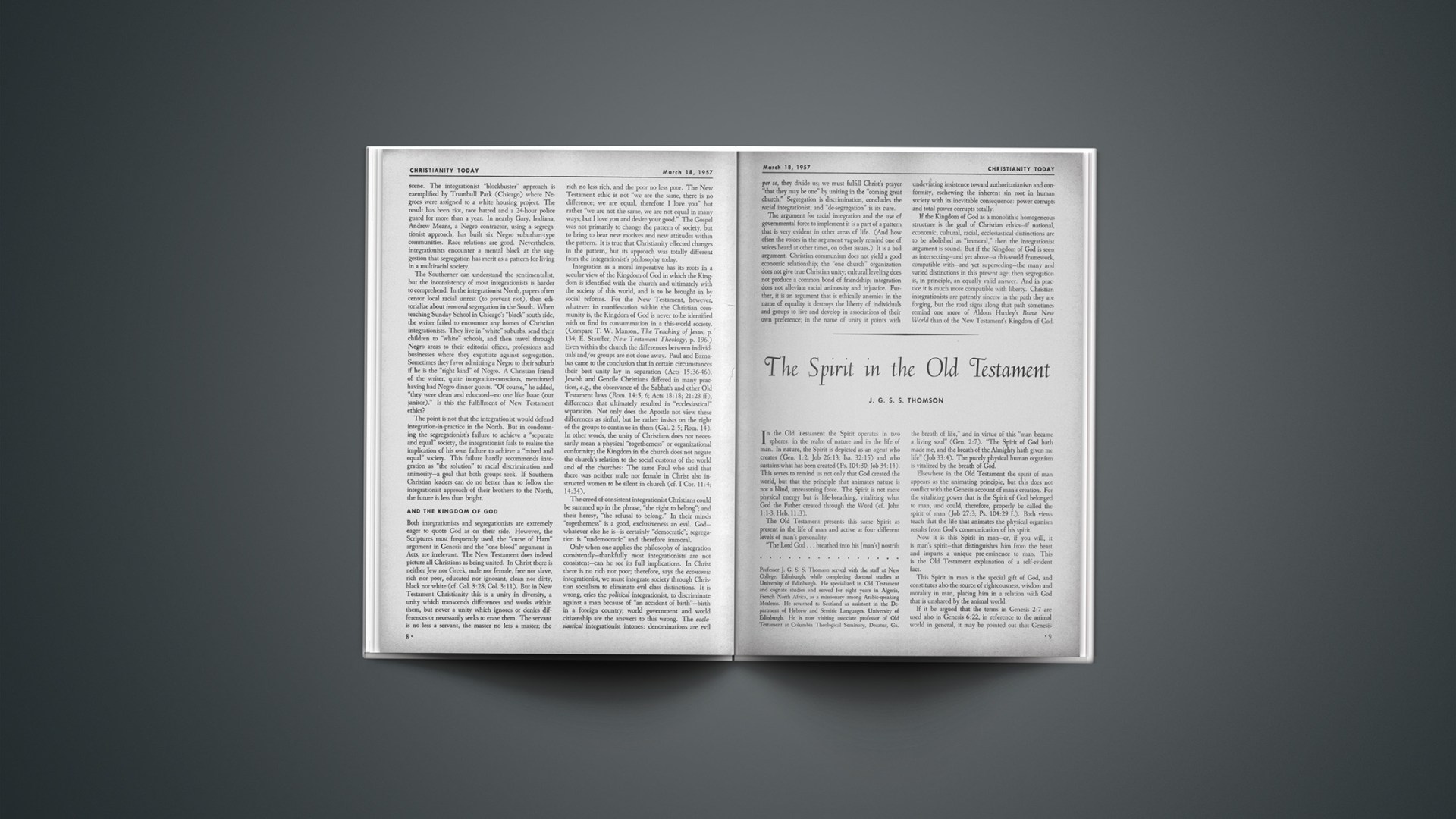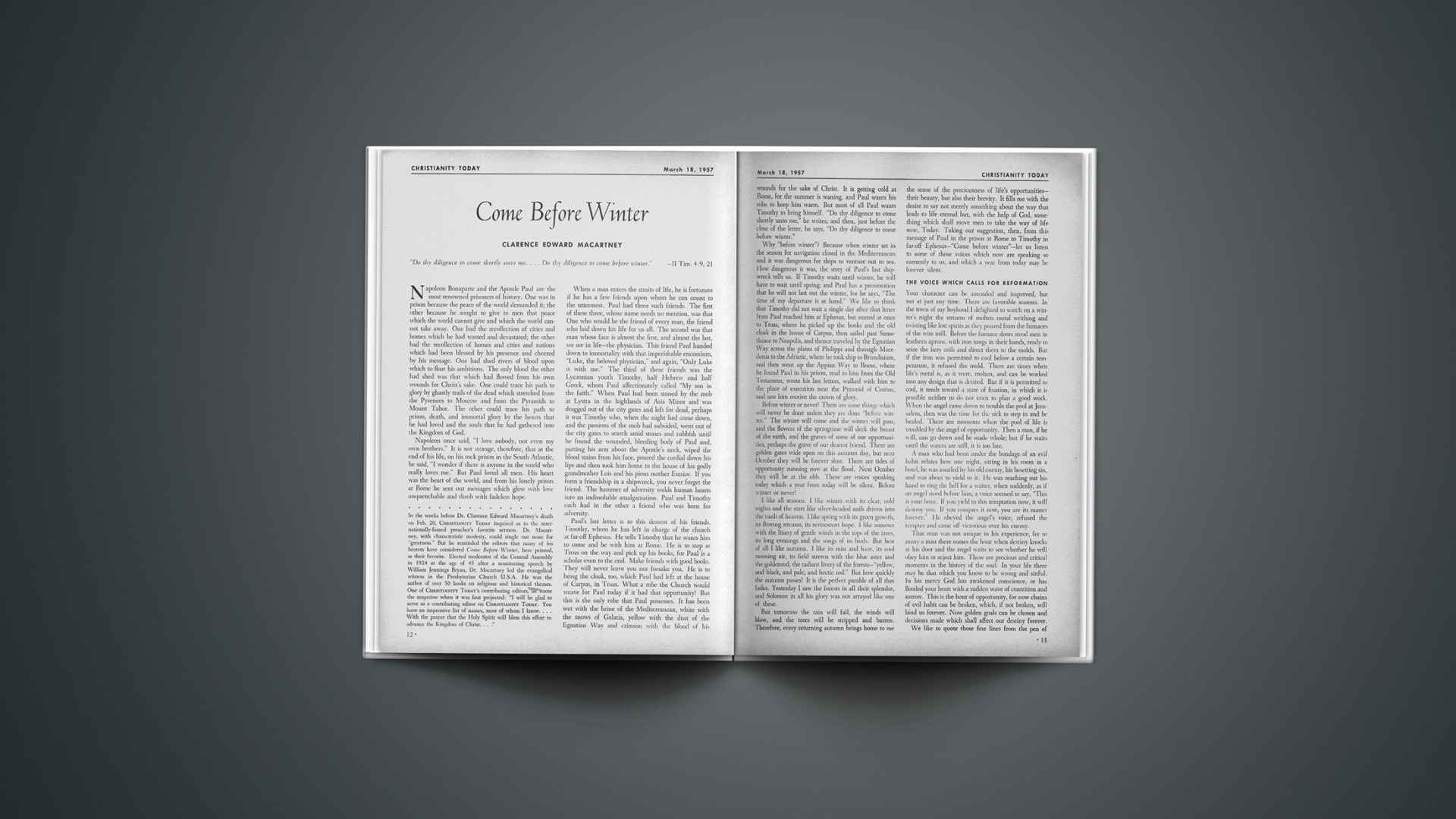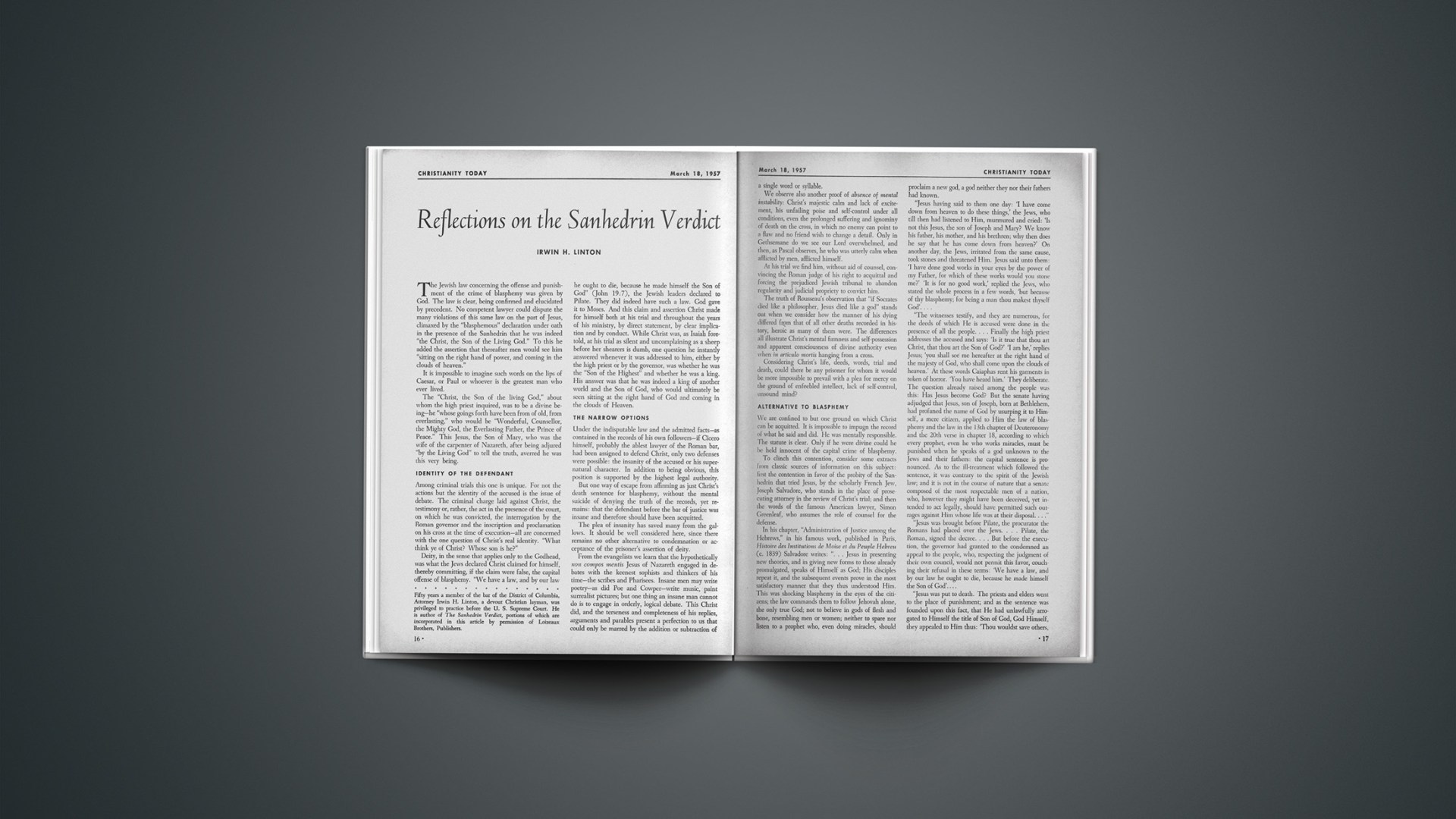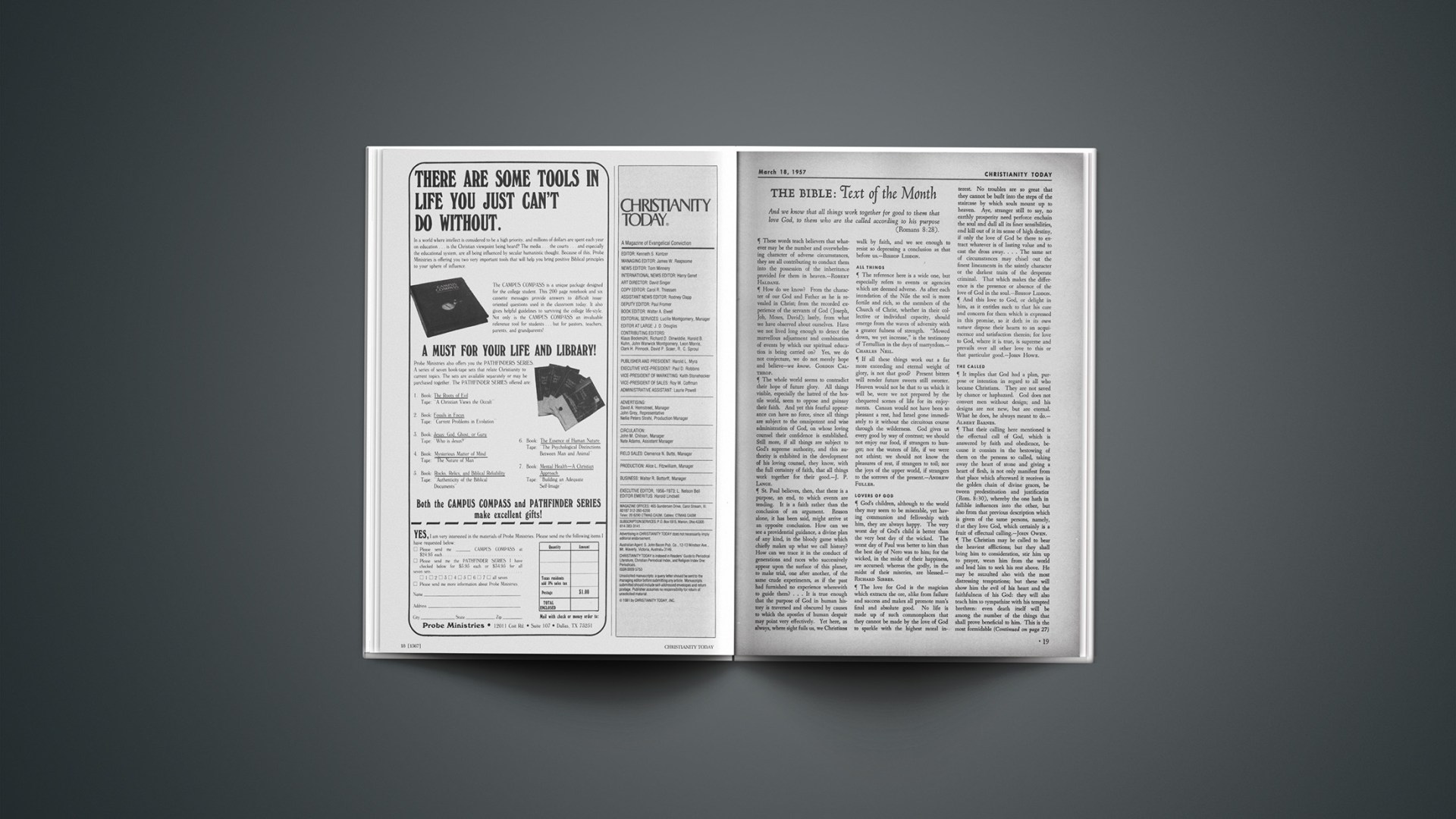Massive Radio Effort
Plans for the construction in the Near East of a 100,000-watt radio transmitter to beam programs to the Arabic-speaking world have been approved by the Near East Committee of the National Council of Churches.
To be built at a cost of $250,000, the station will be supported by cooperative Protestant foreign mission boards. With the exception of the Vatican radio, which equals the new station’s planned power, this reportedly will be the largest and most powerful venture in radio by any religious group.
The radio will be as powerful as the 100,000-watt Voice of America transmitters in the area. Like these, it will be short-wave, which carries much farther than medium and long-wave signals. Most home radios in Africa and the East—405,000 were licensed last year in Egypt alone—are equipped to receive short wave.
Exact location of the transmitter has not been determined.
Radio jamming by Russia, recently intensified in the area, will be a problem, but church engineers are optimistic after studying transmitting conditions in the Middle East.
The station’s programs will be educational and cultural as well as religious.
Dr. W. Burton Martin, executive secretary of the NCC’s RAVEMCCO (Radio, Audio-Visual Education, Mass Communications Committee), said programming will call for an eight-hour day, seven-day-a-week schedule. Included will be a family breakfast program, and programs for industrial workers, farmers and homemakers.
Bible study and daily devotions will be features in the schedule, but music, drama and light entertainment will have significant roles.
“Its influence will be invaluable in bringing the Christian message to new millions, while operating in the public interest,” said Dr. Martin.
Some American observers said they were not enthusiastic about the church putting on public service programs. Others expressed hope that evangelical voices, long familiar to world audiences as bearers of the Gospel, will not he bypassed.

